Dragon Door Interviews RKC Team Leader, Robert Miller
by Adrienne Harvey, PCC-TL, RKC-II, CK-FMS, Primal Move Nat’l Instructor

Dragon Door: How did you get started with kettlebells?
Robert Miller: In 2004, I was working at a big box gym in Chicago called Xsport Fitness and met Arturas Kolgovas who was training his clients in a corner of the gym. This was before he had even gone to an RKC workshop! He'd left the Soviet Union, came to Chicago, and started his career as a trainer. He introduced me to kettlebells for the first time.
Dragon Door: Have you always been active?
Robert Miller: It all started in fourth grade when I wasn't very good at playing baseball. I didn’t like not being very good and didn't understand why, so I just decided to play all the time! Since I was a little boy, baseball, football and sports have been an outlet and a way for me to be myself. Since then I’ve always been active and involved in sports.
I was a skinny kid and graduated high school at six feet tall 165lbs. I was super-fast and very athletic—football and baseball were my games, but that ended in high school. So, I enlisted in the Navy which was a great decision because they found a way to use my athletic skills with rescue swimming.
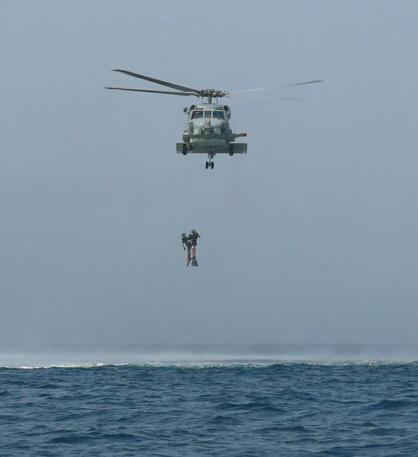
Having trained in the Navy, I could see the results of the entire process starting with boot camp. I saw myself progress from someone who didn't know what to do about anything to someone who can function in a very high stress environment while remaining focused on the mission. I didn't just see this in myself, but with everyone who worked along with us on that level.
It was fascinating and helped me to get perspective—if I could control a training program, I could produce specific results. After the military, coming into civilian life I was still very passionate about designing training processes. I felt like I could bring my experience from the military to people who were looking for improvements and a training process of their own. Even though I have an intense military background, I know how to soften the edges and make training fun as a
personal trainer. It’s still fun for me, too.
Dragon Door: How long have you been a personal trainer?
Robert Miller: Since 2002. I was certified as a personal trainer in 2000, but was still in the Navy and not actively training clients yet. But, at the time I was in charge of the search and rescue swimmer program at HSL- 48. I was in charge of leading PT and managing the training program for the rescue swimmers and other squadron members.
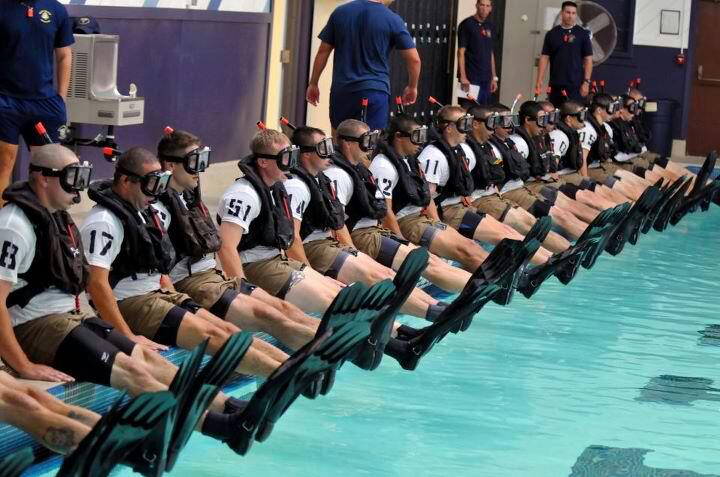
Dragon Door: Who are you currently training?
Robert Miller: Right now I’m training a lot of people around my age—26 to 35 years old—athletes, recreational soccer players, and many young professionals who need to mix it up at the gym. I train a few fighters too, and I use a much more specified training program with them. But I also like to train high school football and
lacrosse players.
Dragon Door: How have your clients benefitted from training with kettlebells?
Robert Miller: Their overall body awareness improves as they learn about force distribution, and their athletic skill increases. Since
kettlebells are always driven from the hip, increasing hip speed and power directly translates into greater athletic power. A few golfers I've been working with claim to have upped their game, and I am working with my golf pro client on how to help more golfers improve their swing. Basically kettlebells help to increase speed, kinesthetic awareness and greater coordination.
When someone thoroughly understands our kettlebell training, it’s easy for me to translate the movements to their sport. It’s also a baseline for them to measure their strength before they begin one of our kettlebell programs focused on hip speed and mobility for golfers. I’ve also applied the program for a friend of mine who plays minor league baseball. It worked for him, so I am currently working to get more data behind our training programs.
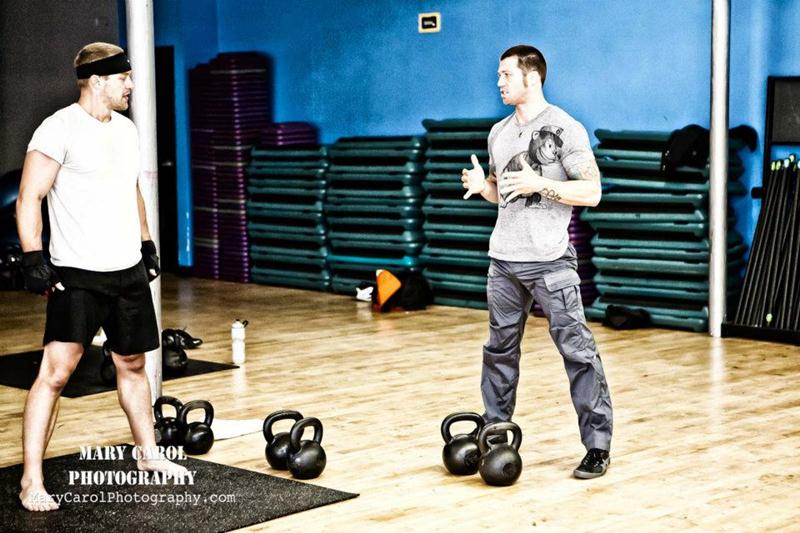
I also teach group classes. My classes are kettlebell-centric with the addition of body weight exercises. Because of my military background, I’ll never get rid of the
calisthenics exercises that we lived in the Navy. In my classes we do push-ups, lunges, and plenty of explosive drills—but our answer for raw strength is RKC Hardstyle kettlebell training.
Dragon Door: What brought you to the RKC?
Robert Miller: I originally learned about kettlebells in 2004. At first I bruised my forearms badly which was frustrating. I never really got it, especially since there weren’t many online resources at the time. Fortunately I found
Enter the Kettlebell which helped me a lot right from the beginning, and it helped me stop bruising my forearms too.
A few people influenced me with their blog posts, but for the most part when I found Dragon Door, I knew I wanted to be an RKC. After I ordered
Enter the Kettlebell,
Relax Into Stretch, and a few
DVDs from Dragon Door, I realized how "all in" I was. Eventually, I responded to an email with a good discount for an RKC Workshop, and wondered why I didn’t sign up sooner!
Dragon Door: How has the RKC influenced you as a trainer?
Robert Miller: Before my first
RKC Workshop in April 2009 I thought I’d already figured out how the body works, and the way to make people fit and strong. But, going to the RKC was an enlightening experience—I realized I had to go back to the drawing board. It was hard for me to give up the idea of only doing heavy grinding lifts without ever stretching! I had to welcome a whole entirely new system because I’d been stubborn with my kettlebell training for the previous five years. Learning on my own and taking bits and pieces from
Dragon Door books and DVDs I’d come up with my own way. But when I got over my stubbornness at the workshop—which was difficult for me—it changed everything about my approach. I stopped doing barbell lifts for a while and only focused on what I learned at the RKC. I wanted to understand it completely so I used the ideas for my own training and taught it to everyone I knew to further hone my teaching skills.
The best coaches I’ve worked with haven’t ever been overly polite—they’ve been themselves, and taught me their way. That way shouldn’t be easy, it should be a difficult and often emotional process. I think part of the game is not only learning the skills, but learning from the process as well. Back in the day my coaches were always in my face yelling at me, but soon after, I was able to do everything almost perfectly because of that intensity. It’s good to remember that my own training program grew from that psychological soil.
Dragon Door: What's your training philosophy?
Robert Miller: You just have to wake up and do it. I have a little motor inside pushing me forward. Again, those hard coaches in my past are the ones that have engrained my need for fitness. I am going to keep with my training and age as gracefully I can. I also practice martial arts for the sake of readiness, and the skill of fighting. The combative moves we practice are very aggressive, explosive and controlled. My personal strength and conditioning program is also built around these approaches and how the body naturally moves—this is the application of all my mobility, strength, and conditioning. It’s comforting to know that if all else fails at least I'm conditioned.
Dragon Door: What will you bring from your leadership experiences in the Navy to your role as RKC Team Leader?
Robert Miller: On normal days it means I show up on time and work with that typical militant edge. But, I also have the unique opportunity to spread the RKC information to my old Navy buddies. Interestingly enough they are all First Class Petty Officers, Chiefs and Officers which means that if I can find a way to include them, then I will also include their subordinates. Ideally, I would like to bring RKC Certification Workshops to their squadrons. Since I'm still connected with many of my Navy friends I know they are still active and interested in RKC style training.
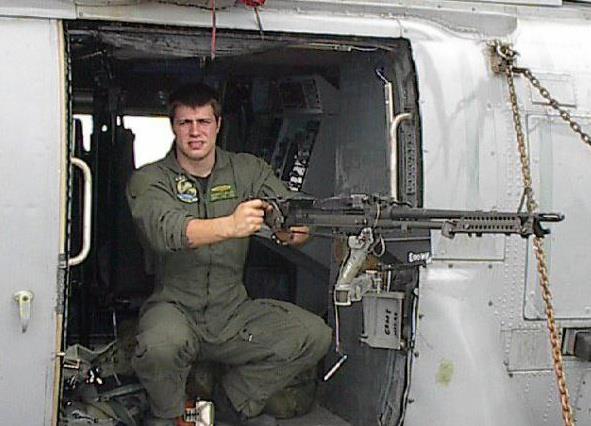
Also because of my military experience with calisthenics I want to go to a
PCC Workshop. Not only are the Kavadlo brothers super cool, but I want to fully understand the moves, how to progress, and understand that whole process enough to bring it to my clients. I think there’s so much new information with movement that trainers and instructors need to constantly learn from the experts. I’m hosting another RKC Workshop in Chicago soon and want to have as many
Dragon Door workshops as possible here. We’re seeing a tidal wave of Dragon Door culture in the city because there is a lot of openness to trying new things.
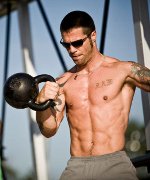 Robert Miller owns In Kilograms in Chicago, Illinois where he also trains individuals and leads classes. His website is InKilograms.com Find him on Facebook: facebook.com/InKilograms . He can be reached by email: inkilograms@gmail.com or by phone: 773-983-3888
Robert Miller owns In Kilograms in Chicago, Illinois where he also trains individuals and leads classes. His website is InKilograms.com Find him on Facebook: facebook.com/InKilograms . He can be reached by email: inkilograms@gmail.com or by phone: 773-983-3888
Back